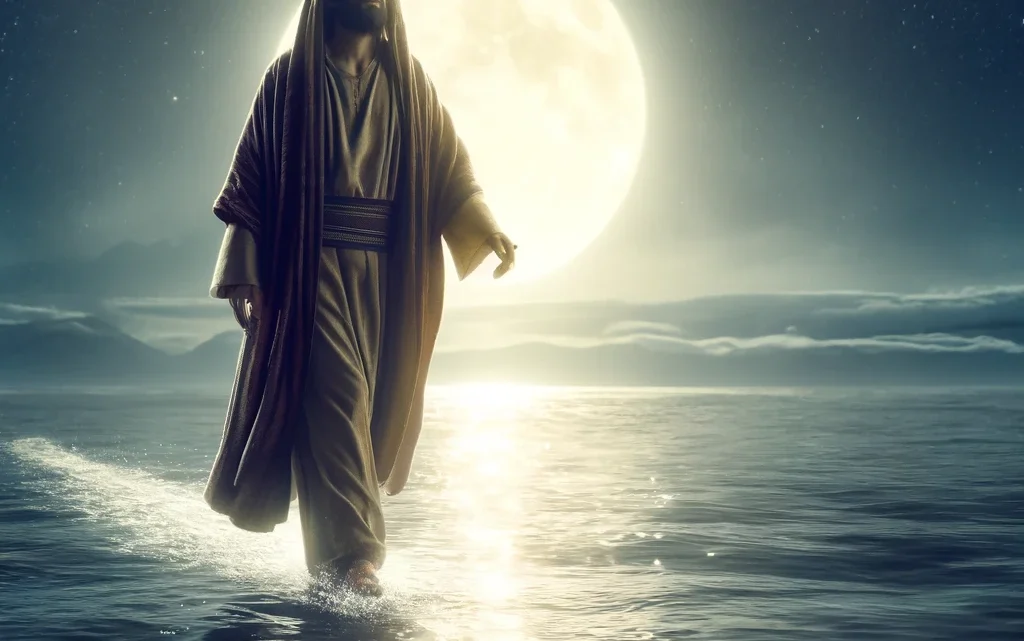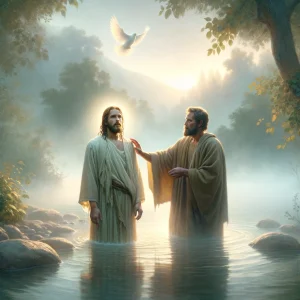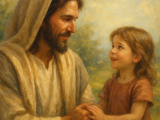“To Whom Should We Worship? Understanding the Roles of Yehovah, Yeshua, and the Spirit of God”


Introduction
Understanding the distinct roles of Yehovah, Yeshua, and the Spirit of God is essential for guiding our worship and prayer life. This post explores key biblical passages that delineate these roles, influencing how believers approach their spiritual practices.
Worship and Prayer as Directed in Scripture
- Praying to Yehovah • Matthew 6:9-13 (The Lord’s Prayer): “After this manner therefore pray ye: Our Father which art in heaven, Hallowed be thy name. Thy kingdom come, Thy will be done in earth, as it is in heaven. Give us this day our daily bread. And forgive us our debts, as we forgive our debtors. And lead us not into temptation, but deliver us from evil: For thine is the kingdom, and the power, and the glory, forever. Amen.” Yeshua teaches us to pray directly to Yehovah, highlighting His sovereignty and providential role.
- The Distinct Role of Yeshua as the Son • John 20:17: “Yeshua saith unto her, Touch me not; for I am not yet ascended to my Father: but go to my brethren, and say unto them, I ascend unto my Father, and your Father; and to my God, and your God.” This shows Yeshua’s role as distinct from Yehovah, encouraging a direct relationship with Yehovah, separate from His own.
- Honoring Yeshua in Context of His Divine Mission • Philippians 2:9-11: “Wherefore God also hath highly exalted him, and given him a name which is above every name: That at the name of Yeshua every knee should bow, of things in heaven, and things in earth, and things under the earth; And that every tongue should confess that Yeshua Christ is Lord, to the glory of God the Father.” This clarifies that reverence for Yeshua is in the context of His obedience to Yehovah’s plan.
- Yehovah as the Supreme Divine Authority • 1 Corinthians 8:6: “But to us there is but one God, the Father, of whom are all things, and we in him; and one Lord Yeshua Christ, by whom are all things, and we by him.” This passage highlights the unique position of Yehovah as the sole source and purpose of all creation and worship. While Yeshua is recognized as Lord, his lordship serves the purpose of leading us to Yehovah, emphasizing that all worship and ultimate allegiance belong to Yehovah alone.
Yeshua as Prophet, Priest, and King
Yeshua fulfills the threefold office of prophet, priest, and king, each role providing a deeper understanding of His mission and how He mediates our relationship with Yehovah.
Prophet
• Deuteronomy 18:15-18: “The Lord thy God will raise up unto thee a Prophet from the midst of thee, of thy brethren, like unto me; unto him ye shall hearken;”Priest
• Hebrews 4:14-15: “Seeing then that we have a great high priest, that is passed into the heavens, Jesus the Son of God, let us hold fast our profession. For we have not an high priest which cannot be touched with the feeling of our infirmities; but was in all points tempted like as we are, yet without sin.”King
• Revelation 19:16: “And he hath on his vesture and on his thigh a name written, KING OF KINGS, AND LORD OF LORDS.”Christ’s Baptism: A Display of Distinct Divine Roles
• Matthew 3:16-17: “And Yeshua, when he was baptized, went up straightway out of the water: and, lo, the heavens were opened unto him, and he saw the Spirit of God descending like a dove, and lighting upon him: And lo a voice from heaven, saying, This is my beloved Son, in whom I am well pleased.” The separate appearances and roles of Yehovah, Yeshua, and the Spirit of God during Yeshua’s baptism are profound, illustrating their coordinated yet distinct roles.Conclusion
The clear distinctions between Yehovah, Yeshua, and the Spirit of God in Scripture guide us in focusing our worship appropriately. By understanding these distinct roles, believers can ensure their worship aligns with biblical teachings, enriching their spiritual connection and worship practices.










